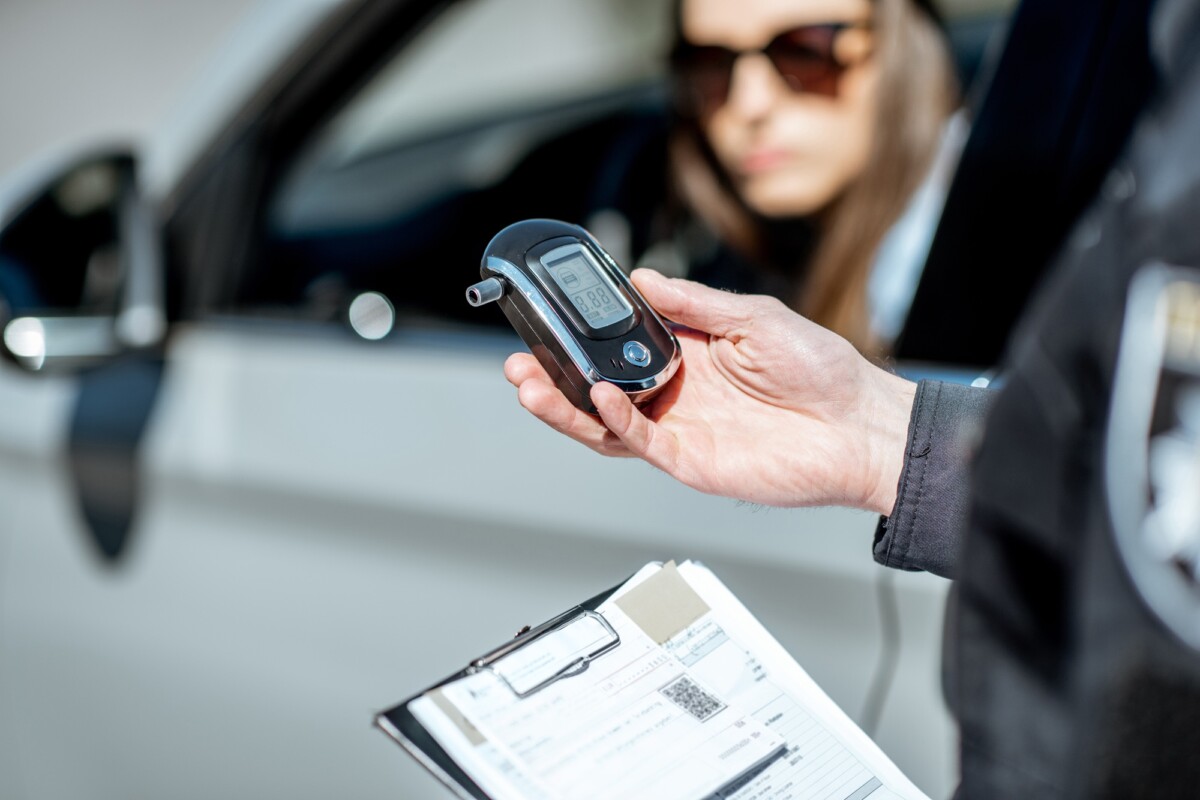Can I Refuse a Breathalyzer or Sobriety Test During a DUI Stop?

Driving under the influence (DUI) is a serious offense with potentially life-changing consequences. If you are pulled over by law enforcement on suspicion of DUI, you may be asked to take a breathalyzer or field sobriety test. Many drivers wonder: Can I refuse a breathalyzer or sobriety test during a DUI stop? The answer is complex and depends on your state’s laws, the circumstances of the stop, and your personal situation.
This comprehensive guide will explore your rights, the legal implications of refusing tests, and what you should do if you find yourself in this situation. We’ll also answer frequently asked questions and provide clear calls to action for connecting with experienced DUI attorneys.
Understanding DUI Stops and Testing
When a police officer suspects that a driver is under the influence of alcohol or drugs, they may initiate a traffic stop. The officer will observe your behavior, ask questions, and may request that you perform certain tests to determine if you are impaired.
These tests generally fall into two categories:
-
Field Sobriety Tests (FSTs): Physical or cognitive tasks performed on the roadside.
-
Chemical Tests: Breath, blood, or urine tests to measure blood alcohol concentration (BAC).
The outcome of these tests can determine whether you are arrested, charged, or released. Understanding your rights and the consequences of your choices is crucial.
Types of DUI Tests
Field Sobriety Tests (FSTs)
Field sobriety tests are standardized tasks designed to assess your physical and cognitive abilities. Common FSTs include:
-
Walk-and-Turn Test
-
One-Leg Stand Test
-
Horizontal Gaze Nystagmus Test
These tests are subjective and rely on the officer’s interpretation of your performance.
Chemical Tests
Breathalyzer:
A device that estimates your BAC by measuring alcohol in your breath. It is the most common test used during roadside stops.
Blood Test:
Measures the actual concentration of alcohol (or drugs) in your bloodstream. Usually administered at a police station or hospital.
Urine Test:
Less common, but sometimes used to detect drugs or alcohol.
Your Rights at a DUI Stop
You have certain constitutional rights during a DUI stop, including:
-
The Right to Remain Silent: You do not have to answer incriminating questions.
-
The Right to Refuse Field Sobriety Tests: In most states, FSTs are voluntary, and you can politely decline.
-
The Right to Refuse Preliminary Breath Tests (PBTs): The roadside breath test (not the official evidentiary test) can often be refused without immediate penalty.
-
The Right to Legal Counsel: After arrest, you have the right to speak with an attorney.
However, refusing certain tests can have significant legal consequences due to implied consent laws.
Implied Consent Laws Explained
What Is Implied Consent?
When you obtain a driver’s license, you agree to submit to chemical testing (breath, blood, or urine) if lawfully arrested for DUI. This is known as implied consent.
How Does Implied Consent Work?
-
If you are arrested for DUI, the officer will request a chemical test.
-
Refusing the test typically results in automatic administrative penalties, such as license suspension, regardless of whether you are convicted of DUI.
State Variations
Implied consent laws vary by state. Some states impose harsher penalties for refusal, while others may allow for certain defenses.
Learn more about your state’s laws and protect your rights by connecting with a DUI attorney now or call 833-279-1850 for a free consultation.
Consequences of Refusing a Breathalyzer or Sobriety Test
Administrative Penalties
-
License Suspension: In most states, refusing a chemical test results in automatic suspension of your driver’s license. The duration varies (typically 6 months to 1 year for a first offense).
-
Fines and Fees: You may be required to pay reinstatement fees and attend alcohol education programs.
Criminal Penalties
-
Enhanced Penalties: Some states add criminal penalties for refusal, including jail time or increased fines.
-
Admissibility in Court: Prosecutors may argue that your refusal indicates consciousness of guilt.
Impact on Your Case
Refusing a test does not guarantee you won’t be convicted. Prosecutors can use other evidence (officer observations, dashcam footage, witness statements) to build their case.
Don’t face these consequences alone. Speak with a qualified DUI lawyer today or call 833-279-1850 for immediate assistance.
State-by-State Differences
Each state has unique laws regarding DUI stops, chemical testing, and the consequences of refusal. Here are a few examples:
California (ZIP Code: 90001)
-
Implied Consent: Yes
-
Refusal Penalties: 1-year license suspension for first offense
-
FSTs: Voluntary, but refusal may be noted by officer
Texas (ZIP Code: 73301)
-
Implied Consent: Yes
-
Refusal Penalties: 180-day license suspension for first offense
-
FSTs: Voluntary
Florida (ZIP Code: 33101)
-
Implied Consent: Yes
-
Refusal Penalties: 1-year license suspension for first offense, 18 months for subsequent refusals
-
FSTs: Voluntary
New York (ZIP Code: 10001)
-
Implied Consent: Yes
-
Refusal Penalties: 1-year license revocation, $500 civil penalty
-
FSTs: Voluntary
Illinois (ZIP Code: 60601)
-
Implied Consent: Yes
-
Refusal Penalties: 1-year license suspension for first offense
-
FSTs: Voluntary
For detailed information about your state, contact a local DUI attorney now or call 833-279-1850.
When Might Refusing a Test Be Advantageous?
Refusing a breathalyzer or sobriety test is a serious decision. In some cases, it may be beneficial, but there are significant risks.
Potential Advantages
-
Lack of Chemical Evidence: Without a BAC reading, the prosecution has less direct evidence.
-
Challenging the Stop: If the officer lacked probable cause, your attorney may challenge the legality of the stop and subsequent arrest.
Potential Disadvantages
-
Automatic License Suspension: Even if you avoid a DUI conviction, your license may be suspended for refusal.
-
Use Against You in Court: Prosecutors can argue that refusal indicates guilt.
When to Consider Refusal
-
If you believe you are well over the legal limit and a conviction is likely with a BAC reading.
-
If you have prior DUI convictions and face enhanced penalties.
Every case is unique. Consult with a DUI defense lawyer or call 833-279-1850 to discuss your options.
What to Do If You’re Arrested for DUI
-
Remain Calm and Polite: Do not argue with the officer.
-
Exercise Your Right to Remain Silent: Politely decline to answer questions beyond basic identification.
-
Request an Attorney: Do not answer questions or make statements without legal counsel.
-
Document Everything: Write down details of the stop, the officer’s behavior, and your actions.
-
Request a Hearing: In many states, you must request a hearing to contest your license suspension within a specific time frame (often 10 days).
Take immediate action to protect your rights. Get a free case review now or call 833-279-1850.
How a DUI Attorney Can Help
A skilled DUI lawyer can:
-
Challenge the Legality of the Stop: If the officer lacked reasonable suspicion or probable cause, evidence may be suppressed.
-
Contest the Test Results: Breathalyzers and FSTs are not infallible; your attorney can challenge their accuracy and administration.
-
Negotiate Reduced Charges: In some cases, charges can be reduced or dismissed.
-
Represent You at Administrative Hearings: Protect your driving privileges by fighting license suspension.
Don’t risk your future. Connect with a top DUI attorney now or call 833-279-1850 for immediate help.
Frequently Asked Questions (FAQs)
1. Can I legally refuse a breathalyzer test?
In most states, you can refuse a breathalyzer, but you will face administrative penalties such as license suspension due to implied consent laws. Some states may also impose criminal penalties for refusal.
2. What happens if I refuse a field sobriety test?
Field sobriety tests are generally voluntary. Refusing them usually does not carry penalties, but the officer may still arrest you based on other observations.
3. Will refusing a test help my case?
It depends. Refusing a chemical test may deprive the prosecution of BAC evidence, but you will face automatic license suspension and your refusal can be used against you in court.
4. Can I refuse a blood test?
You can refuse a blood test, but the same implied consent laws apply. In some cases, officers may obtain a warrant to compel a blood draw.
5. How long will my license be suspended for refusal?
This varies by state and prior offenses. First-time refusals typically result in a 6-12 month suspension, but it can be longer for repeat offenses.
6. Can I get my license back after refusal?
You may be eligible for a restricted or hardship license, but you must request a hearing and may need to install an ignition interlock device.
7. Should I contact a lawyer if I refused a test?
Absolutely. DUI law is complex, and an experienced attorney can help protect your rights and minimize penalties.
Have more questions? Get answers from a DUI lawyer now or call 833-279-1850.
Refusing a breathalyzer or sobriety test during a DUI stop is a decision with serious legal consequences. While you have rights, implied consent laws mean that refusal almost always results in administrative penalties and can impact your criminal case. The best course of action is to understand your state’s laws, remain calm and respectful during the stop, and seek legal counsel as soon as possible.
If you or someone you know is facing DUI charges or has refused a breathalyzer or sobriety test, don’t wait. Connect with an experienced DUI attorney today or call 833-279-1850 for a free, confidential case review. Protect your rights, your license, and your future.
Need immediate legal help? Get your free DUI case review now or call 833-279-1850. We connect you with top DUI lawyers in your area.
Disclaimer: This article is for informational purposes only and does not constitute legal advice. Laws vary by state and individual circumstances. Always consult a qualified attorney for advice regarding your specific case. For more resources, visit the National Highway Traffic Safety Administration or your state’s Department of Motor Vehicles.


